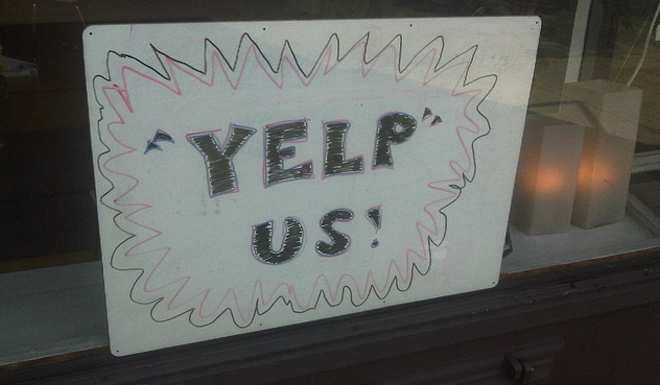Virginia’s Highest Court Says Yelp Doesn’t Have To ID Anonymous Reviewers
A quick recap of this case. In 2012, the carpet cleaner filed suit against seven anonymous Yelp reviewers, claiming they had deliberately and maliciously posted false, negative reviews. The company then subpoenaed Yelp, requesting the real identities of these John Doe defendants.
Yelp objected, claiming its users’ rights would be violated if they were identified without the plaintiff first proving that certain conditions had been met. In Nov. 2012, a trial court in Alexandria, VA, ordered Yelp to abide by the subpoena and provide the requested information to the plaintiff.
Yelp offered a compromise — it would investigate the cleaner’s claims while maintain the anonymity of the users pending the outcome of the investigation. The cleaner declined this offer and the court found Yelp in contempt.
Yelp, working with the advocates at Public Citizen, appealed in May 2013, arguing that a plaintiff must show evidence that a defamation lawsuit has merit before Yelp should be compelled to identify the users. Additionally, there should be a factual showing that the statements made by the John Doe defendants are, in fact, false and defamatory, argued the appeal. But the appeals court again sided with the plaintiff.
The legal catch-22 in this case involved whether or not the reviewers in question were actual customers of the cleaning service. The company insisted they were not, but obviously could not prove that without being able to concretely identify them. Yelp maintained that the reviews in question were materially no different than other reviews that the cleaner did not contest.
In its appeal to the Virginia Supreme Court, Yelp argued that while the carpet cleaner claims that the John Doe reviews were written by non-customers, the company has “offered no evidence to support its belief, no description of its investigation… and no explanation of how its investigation led it to that belief.”
But in the end, today’s ruling doesn’t ponder the First Amendment issues involved in the case. Instead, it looks at whether the carpet cleaner should have issued a subpoena in California — where Yelp and all its relevant files are based — rather than in Virginia.
The carpet cleaner’s lawyer could have presented a subpoena to the clerk’s office of a California circuit court (along with the proper application and fee, of course), which would have obliged the clerk to issue a California subpoena. But instead, the plaintiff presented the subpoena to a representative of Yelp in Virginia.
To the Virginia Supreme Court, this is not sufficient to compel a California company that is not a party to the lawsuit to abide by the subpoena.
“The information sought by [the Plaintiff] is stored by Yelp in the usual course of its business on administrative databases within the custody or control of only specified Yelp employees located in San Francisco, and thus, beyond the reach of the circuit court,” reads the ruling [PDF].
“Although we were hoping the court would rule on both jurisdictional and First Amendment grounds, this is still an important win,” said Paul Alan Levy, the Public Citizen attorney representing Yelp.
But this isn’t the end of the matter. While Yelp is no longer obliged to abide by the original subpoena, the carpet cleaner can now go through the process of seeking a subpoena through the California courts.
If that happens, Levy contends that “those courts will require it to show evidence to meet the well-accepted First Amendment test for identifying anonymous speakers.”
Want more consumer news? Visit our parent organization, Consumer Reports, for the latest on scams, recalls, and other consumer issues.


